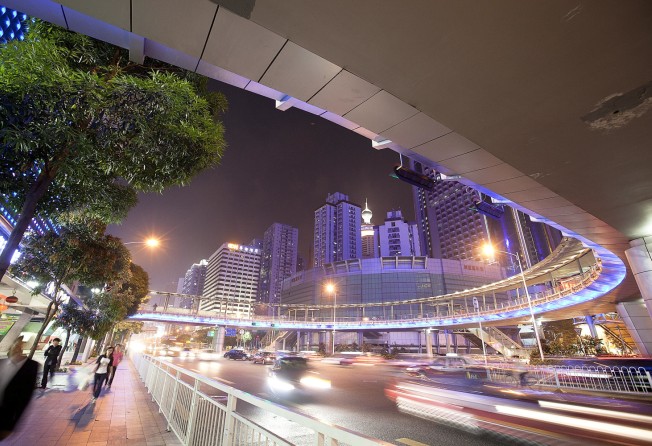12 new free-trade zones to follow in Shanghai's footsteps

The central government has agreed in principle to approve 12 new free-trade zones (FTZs), three months after giving the special status to Shanghai.
The 12 would include Guangdong, which has been lobbying the central government by highlighting its economic ties with Hong Kong, and Tianjin , Xinhua cited an official source as telling its subsidiary the Economic Information Daily. It did not name the remaining 10.
A government source said last night that senior officials from the central government had already completed on-site research in Tianjin and Guangdong and the two FTZs were likely to be launched in about a year.
He said other candidates included Zhejiang's Zhoushan , which consists of several islands with a focus on the shipping business; Qingdao , an important port city; Chengdu , a southwestern business hub; Wuhan , a central province; and Hangzhou , where e-commerce giant Alibaba is based.
"China sets no limits on FTZ numbers and no timetables on building them, as long as they meet the requirements of an FTZ," Xinhua cited its source as saying.
Caesar Wong, a partner with the China Tax & Business Advisory at Deloitte, said growth-challenged Hong Kong should grab the opportunity of Guangdong's free-trade zone status by integrating better with nearby economies including Hengqin in Zhuhai ; Qianhai in Shenzhen; Nansha in Guangzhou and Macau.
Guangdong and Shanghai were the leaders in free-trade zones on the back of developed rail and road infrastructure and the availability of talent, financial services, logistical networks and information technology support, he said.
"Not all the zones will have the same pace of development, because of different stages of economic and infrastructure development," Wong said. "Competition will be very strong."
A Shanghai-based researcher said the approval of more FTZs might not necessarily erode Shanghai's edge, but it would increase the bargaining power of the new zones.
"A collective lobbying effort from various provinces and municipalities would probably prompt the central government to make determinations on financial liberalisations, such as a convertibility of yuan under the capital account," said the Shanghai Academy of Social Sciences researcher, who asked not to be identified.
The central bank's financial reform guidelines for Shanghai were widely considered by lawyers and foreign banks as "too vague and too general", and the municipality has been lobbying for more preferential policies.